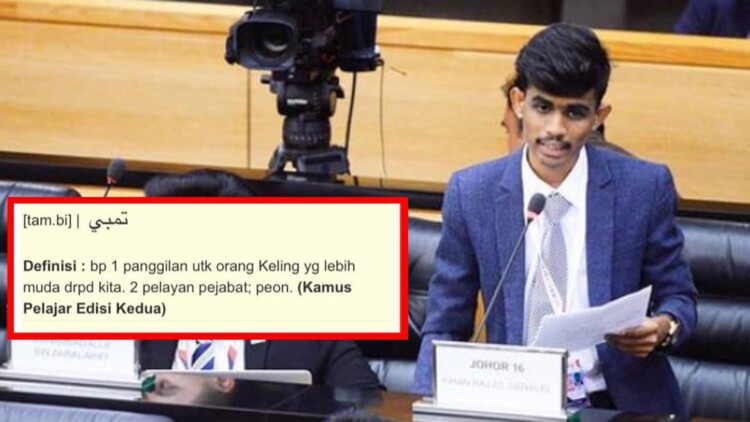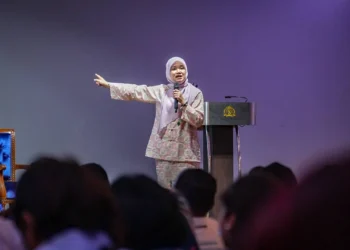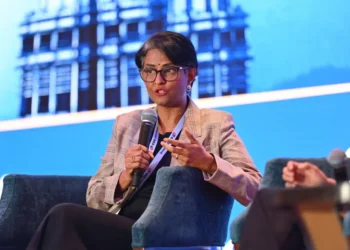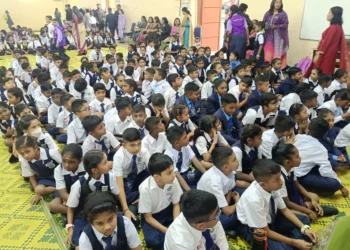Dewan Bahasa dan Pustaka (DBP) promised to remove the ‘K’ word but failed to apologise!
The recent controversial definition of the word Keling by Dewan Bahasa dan Pustaka (DBP) has caused a stir among the public and activists who find that the government agency has offended or humiliated the Malaysian Indian community by using such a defamatory term. The question that arose among the public is why the need for DBP to use the word Orang Keling instead of Orang India.
Following an outrage over the phrase, MIC Youth member Thiagaseelan Ganesan, MIC Senator S Vell Paari, and Penang Deputy Chief Minister P Ramasamy took their grouses to the media to voice out their dissatisfaction over the word and demanded for a clarification from DBP.
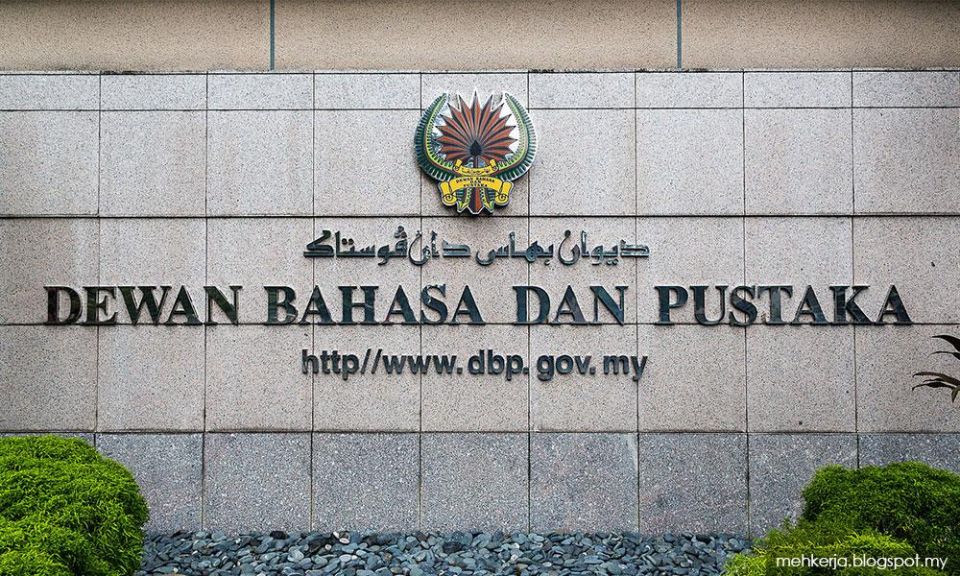
Well, in our previous article, we’ve already covered why Malaysian Indians are called “Keling”.
The controversial definition appears when a search for the word tambi is defined as “panggilan utk orang keling yang lebih muda daripada kita” (term used to refer to a keling person younger than ourselves). As per our Indian callings, tambi is an affectionate Tamil word which means “little brother,” addressing a younger Indian male.
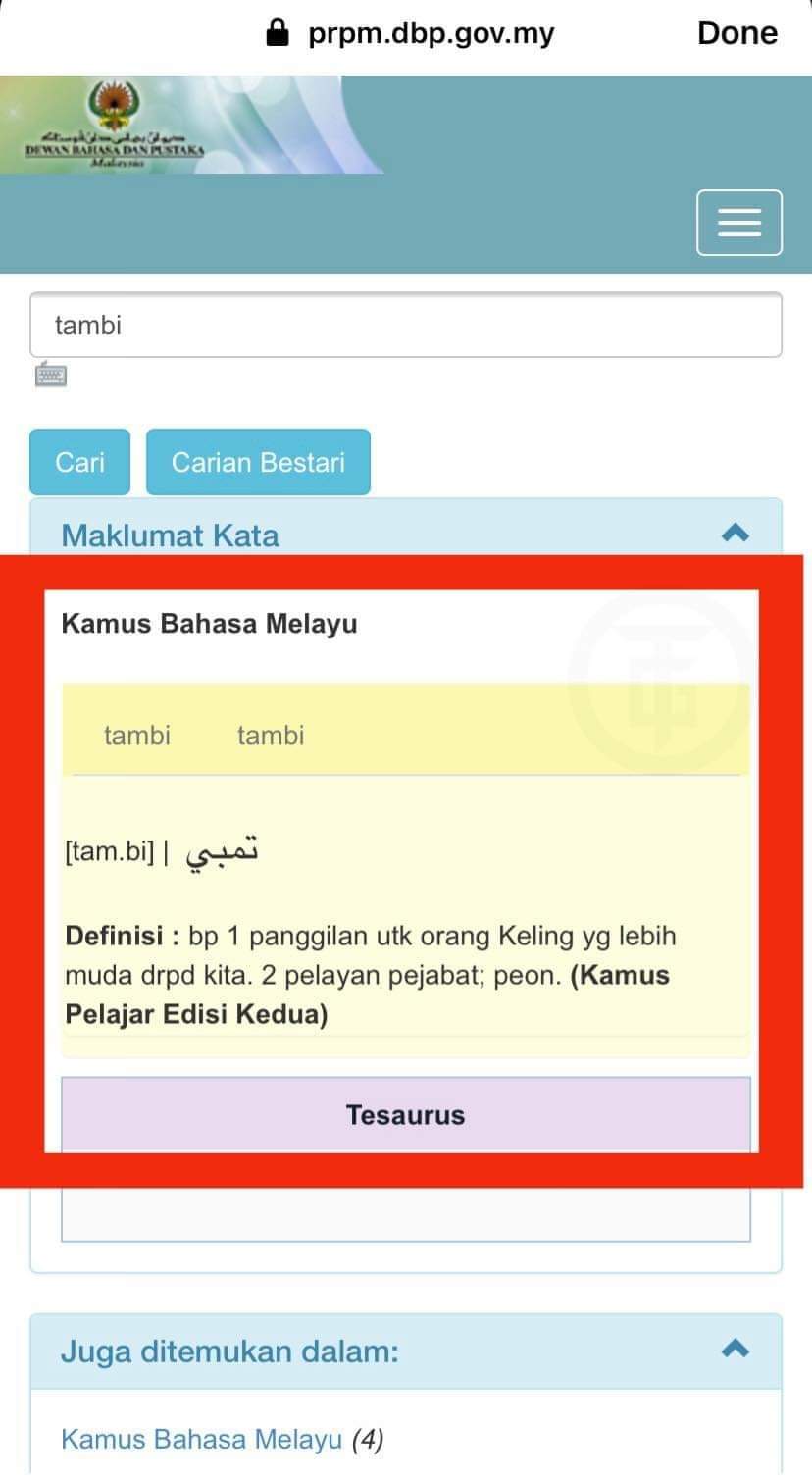
Rather than apologising or expressing regret for humiliating the Indian community, DBP merely stated that the Kamus Pelajar (Students’ Dictionary) would be updated in the next edition.
Check out the updated version:
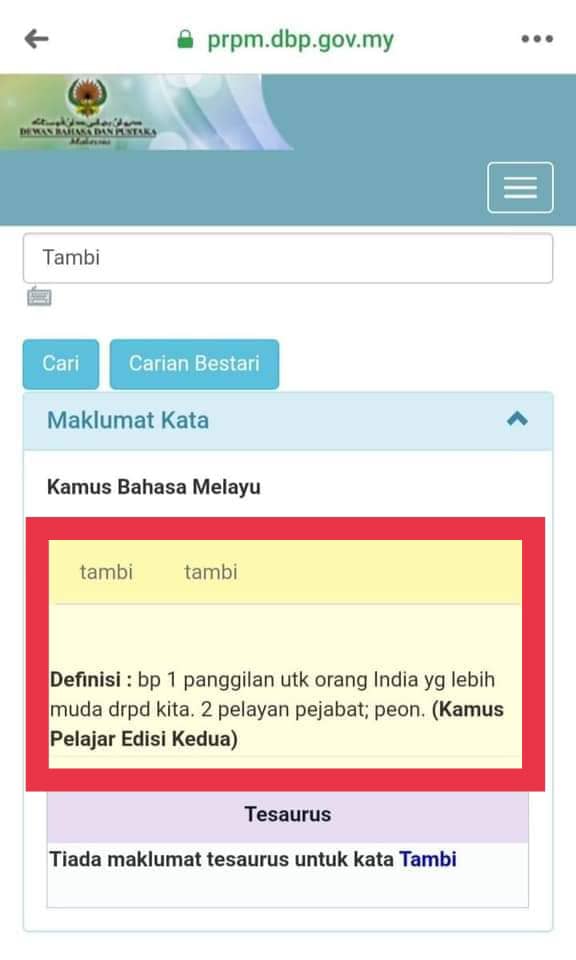 My question to Dewan Bahasa dan Pustaka (DBP):
My question to Dewan Bahasa dan Pustaka (DBP):
Why is there no apology from DBP over the use of the word Keling?
In order to have some insights on this issue, Team Varnam spoke to a primary school teacher who wished to remain anonymous and Youth Member of Parliament, Kiran Raj Sathivel who shared their take on the word deemed controversial.
Kiran Raj Sathivel ; Youth Member of Parliament
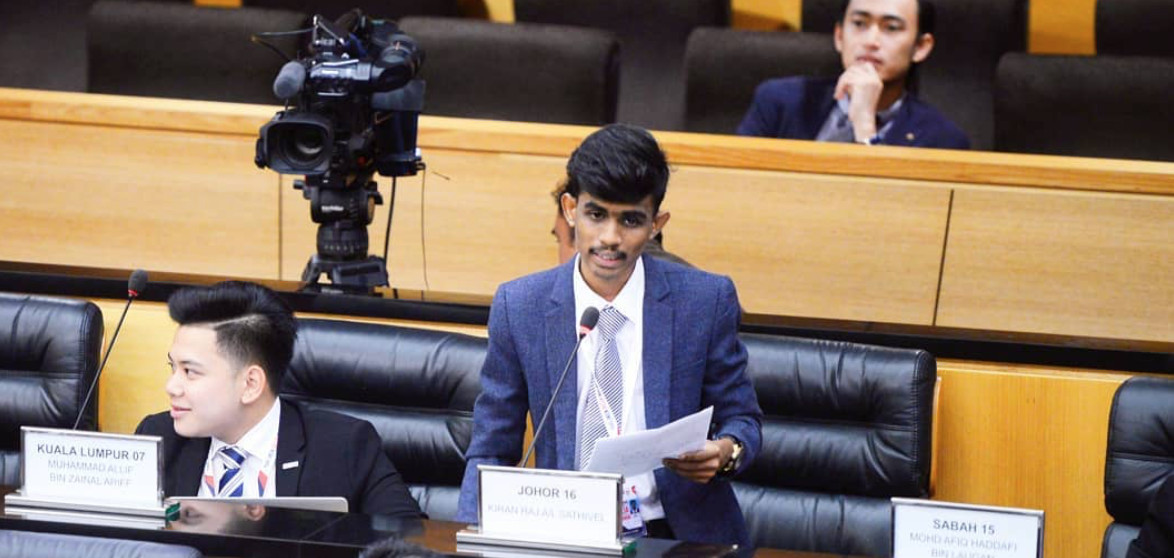
Varnam: What’s your perspective from the recent issue over the definition of the word “tambi” ?
Kiran: Let’s not talk about the historic, cultural or social value behind this word. In the Malaysian context and perspective, surveys are showing that the majority of our Malaysians are aware that this “K” word is used as a derogatory term to insult the Indian community in general. Everybody agrees on this point.
This word has been in usage for the purpose of insulting/defaming the Indian community in public by irresponsible individuals including politicians.
Hereby, I would like to highlight that DBP is a prestigious organisation which upholds the importance of our national language and I believe that our national language is also the catalyst for our national unity. Yet how can we build our national unity when a part of the society is being ostracised with such uncivilised remarks? I believe that Malaysian citizens regardless of any race nor religion are not destined to be treated as second-class citizens in their own motherland.
Hence, I strictly condemn the act of DBP for being impolite and disrespectful towards the Indian community in Malaysia and DBP should issue an apology immediately for the use of the “Keling” word in the dictionary to describe a person of Indian origin.
Varnam: Do you think racial discrimination still exists in the education system?
Kiran: Yes, I believe that racial discrimination does exists in the education system.
Varnam: If yes in what way? And is it severe?
Kiran: I identified the racial discrimination factor in our Malaysian education system when it comes to university acceptance that is based on racial quotas rather than a merit based selection and also in terms of scholarships. In this way, it proves that our Malaysian education system is still ruled by racial policies which benefit the majority Bumiputera population more than the minorities Chinese and Indians.
In general, the students don’t face much hardships during their primary and secondary education. The hurdle begins with tertiary education. Tertiary education is a gateway that lays the foundation for creating potential future graduates that would boost the growth of our country in terms of economy. But race based university placement and scholarships have killed dreams of many youths who lost their dreams just because they don’t belong to a particular race/religion/ethnicity. I strongly believe that education is a human right and not a privilege.
Due to outdated racial educational policies, the severity of the issue has overgrown its roots causing issues such as severe brain drain, gangsterism among youths, social gap, employment discrimination, standard of living and lack of patriotism.
In my opinion, racial discrimination in education systems would solely impact the future and current generation causing unbearable liabilities for the nation.
Varnam: Is racism an ingrained issue? What are your thoughts on this?
Kiran: In my opinion, racism has been ingrained towards the society by individuals who are in the authority such as politicians for their own personal agendas and I strongly believe in this. Malaysia has seen great leaders in its past such as Tun Hussein Onn, Tan Cheng Lock and Tun V.T Sambanthan who fought together to unite the nation. But now in this digital era, everything is being exaggerated extensively, sometimes “intentionally” and it is given unwanted attention which causes uproar/havoc among the society.
I agree that we cannot eradicate racism completely but with sustainable policies and laws, yes we can avoid unwanted chaos. It’s been 245 years since America gained its first independence yet there are still debates between the white people and black people. The possibility of ending racism might be impossible but finding a solution and regulating at its best with sustainable policies and laws is possible.
Anonymous ; The Primary School Teacher
Varnam: What’s your perspective from the recent issue on the definition of the word “tambi” ?
Teacher: I believe it’s very misleading, baseless, undetermined and not critically analysed yet defined to be exercised in the multiracial society that we live in today. I’ve come across another redundancy in definition while searching for the word ‘sami’ which also defined Indians in a derogatory manner.
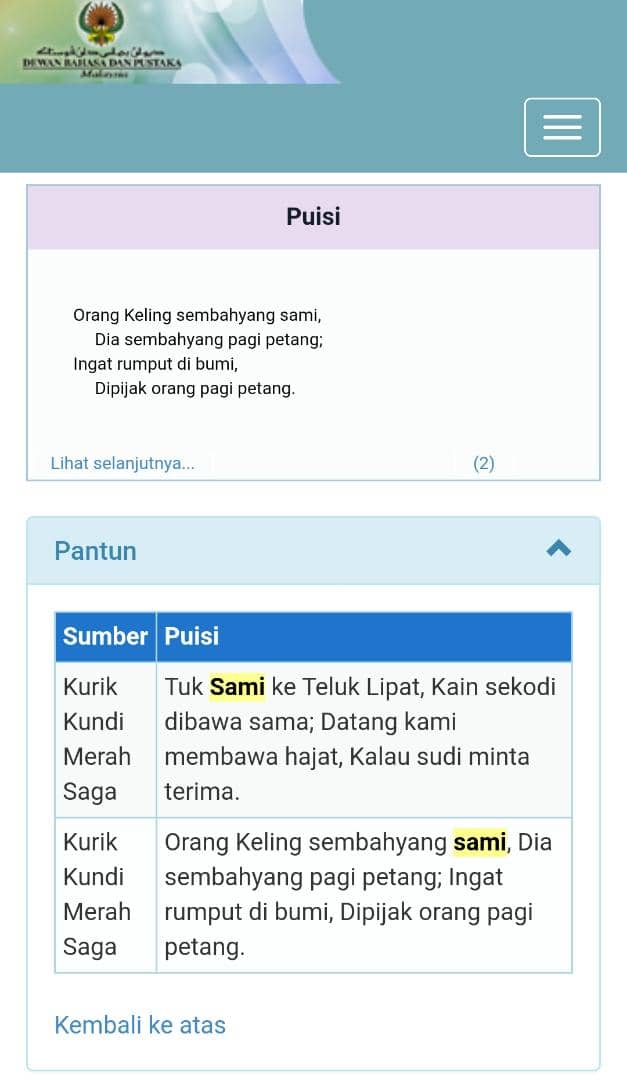
Varnam: Do you think racial discrimination still exists in the Malaysian education system?
Teacher: Racial discrimination doesn’t exist in the education system but in racist educationists, authors or publishers. Irresponsible individuals are to be blamed for the stir of this kind of racial issues.
Varnam: If yes in what way? And is it severe?
Teacher: It’s very subtle when an educationist poisons the minds of the younger generation with irrelevant and false facts.
Varnam: Do authors face instances of racial discrimination when getting their literary work published?
Authors don’t face instances of racial discrimination. In fact, they can be taken as an instance for being racist in their literary work.
Varnam: Is racism an ingrained issue? What are your thoughts?
Teacher: Racism should be killed since it’s an endless issue in our country. The government should implement stringent law enforcement against racist educationists.
It’s time for us to move forward together. It’s now or never!
From my point of view, racism still very much exists in our country but it is very much ingrained in our society. Do you agree with the thoughts shared by Kiran Raj and the anonymous teacher? What’s your take on this matter?
Follow us on Instagram, Facebook or Telegram for more updates and breaking news.


